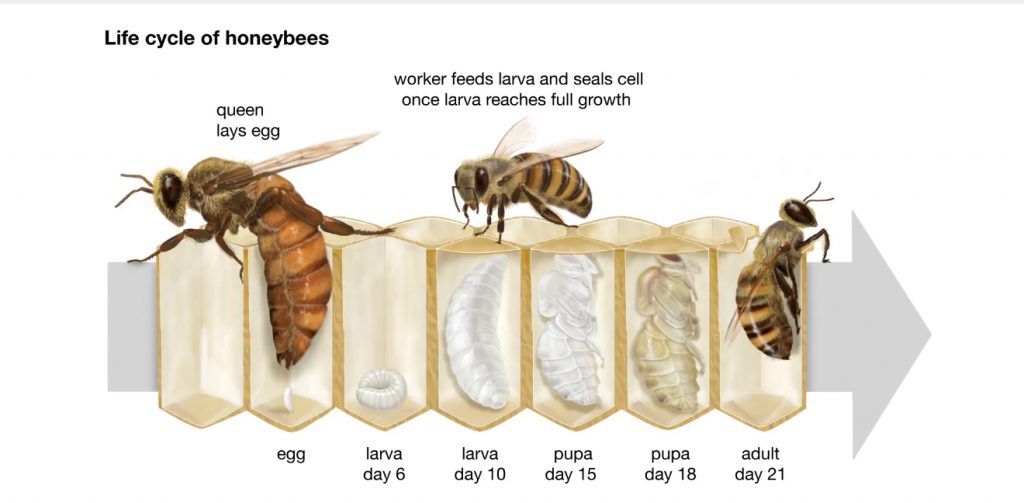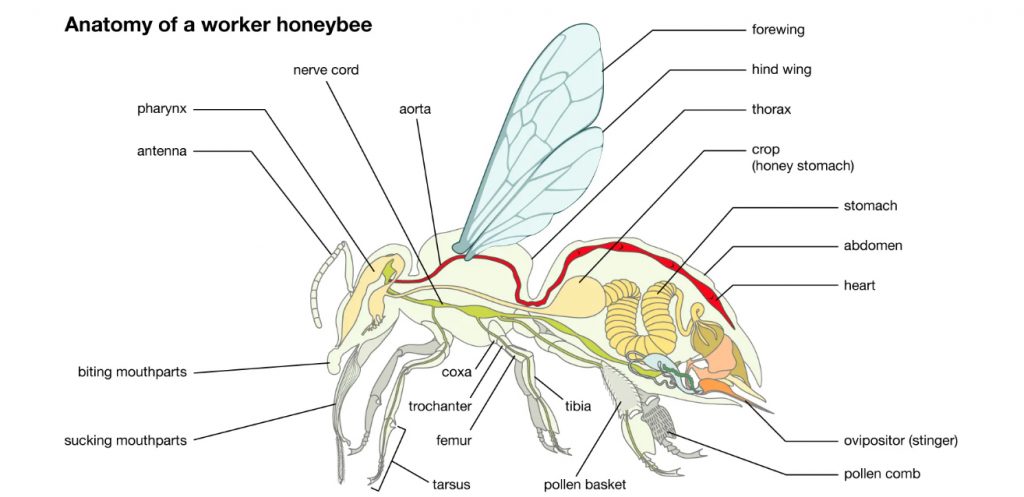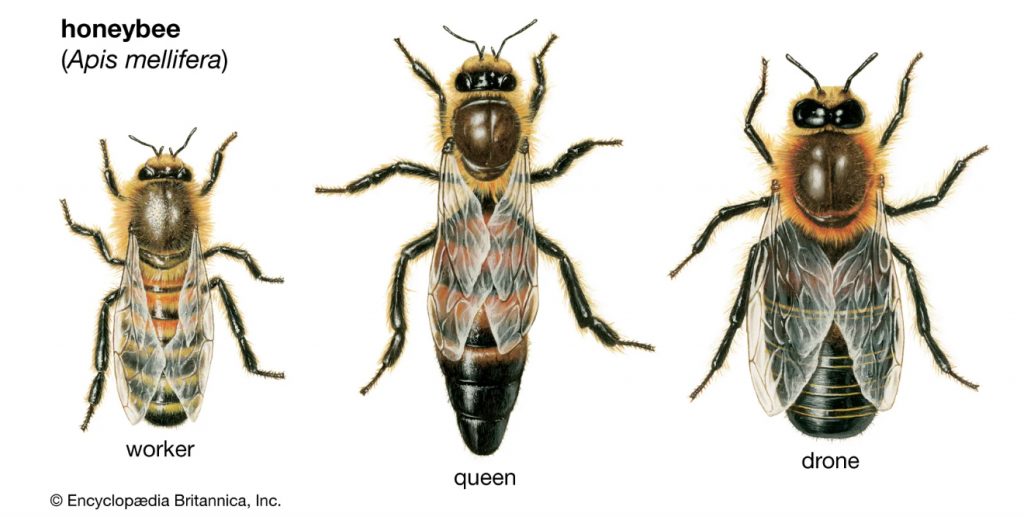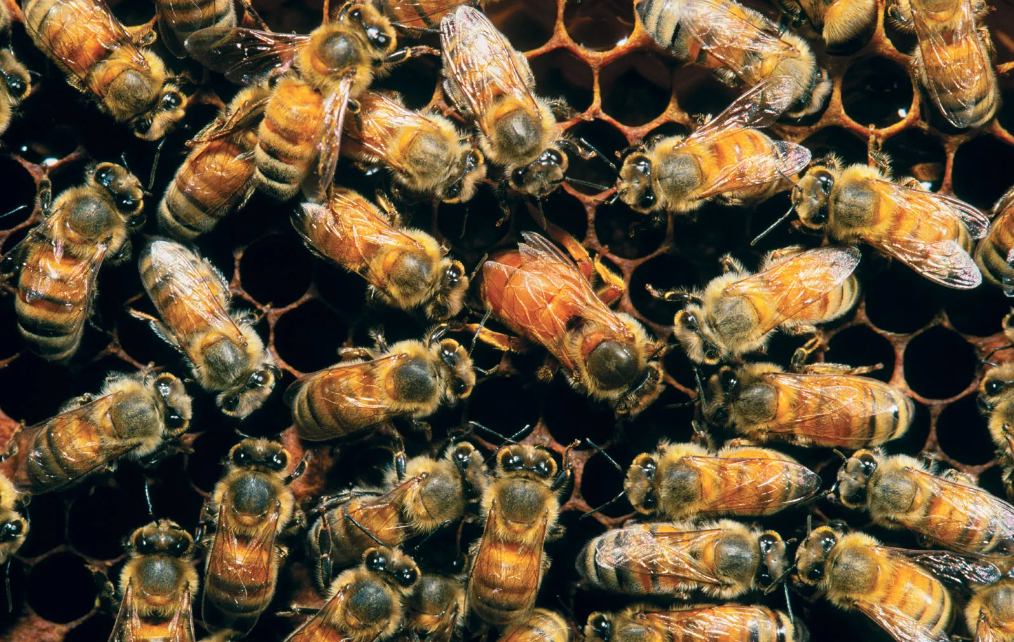A quote attributed to Albert Einstein that says:
“If the bee disappeared off the surface of the globe, then man would have only four years of life left. No more bees, no more pollination, no more plants, no more animals, no more man”.
by Dr. Dalip Kumar, Amity University Punjab, Mohali
Notwithstanding the devastations caused by many species of insect pests, there are a few notable exceptions of those friendly insects which render useful service to mankind. The first and foremost useful insect is the well-known honeybee which is a great source of pollination and provides high-quality energy food—honey, royal jelly, & pollen, and other products such as beeswax, propolis, and honeybee venom.

It is only the member of the genus Apis which lives in colonies with a well -developed caste system, social organization, and strict division of labour. Honeybees are known agents for the collection of nectar from flowers and for its conversion into the most nutritious natural food, Honey. Bees are part of the biodiversity on which we all depend for our survival. According to the Food and Agriculture Organization (FAO) of the United Nations, a third of the world’s food production depends on bees. Accordingly, bees are important both ecologically and economically for the ecosystem service task they play as pollinators.

The plants that yield nectar and pollen are collectively termed “bee pasturage”. Nectar comprises sugars that are the primary source of energy for the bees’ wing muscles and for heat for honeybee colonies for winter. Pollen provides the protein and minerals that are mostly fed to the brood to replace bees lost in the normal course of life cycle and colony activity. The period when a good number of plants providing nectar and pollen are available is the honey flow period. If the nectar yield is abundant from a good number of plants of a particular species it is called “major honey flow period “on the other hand when the amount of nectar to be collected is small it is called “minor honey flow period “. The day when there is no honey flow period is called the “dearth period “.

Pollination is necessary for a wide range of flowering plants, including those that provide food for both humans and other animals Honey Bees are pollinators that play a key role in plant biodiversity conservation, and crop production and contribute directly to food security. Honeybees are the most dominant pollinators on the planet and play a key role in the survival of many species. The decrease in bee population would disrupt the fragile balance of insect, plant, and animal species. Honey Bees are pollinators of flowering plants because of their flower visiting habits, diet, and hairy bodies that easily pick up pollen grains and visit many flowers of the same species during a single trip as such are instrumental in pollination.

Honeybees play an essential role in the formation of a sustainable future for our planet, and the Earth, and act as bio indicators of ecosystem health. They are the important connection between the pollination of plants and the production of food. The remarkable work of honeybees allows us to enjoy a variety of fruits and vegetables. They are a critical part of the world’s natural balance, and their impact should not be overlooked. The biodiversity of our ecosystems would be changed beyond our imagination. The economy would be greatly disturbed a worldwide decrease in crop yields would put a critical strain on agricultural production, resulting in a possible economic halt. By utilizing the astonishing work of honeybees, we can ensure that our food resources are secured and make a bigger contribution towards reproduction, productivity, diversification, economic growth, and conservation of our biodiversity.
To read the full article kindly subscribe to the Magazine…





